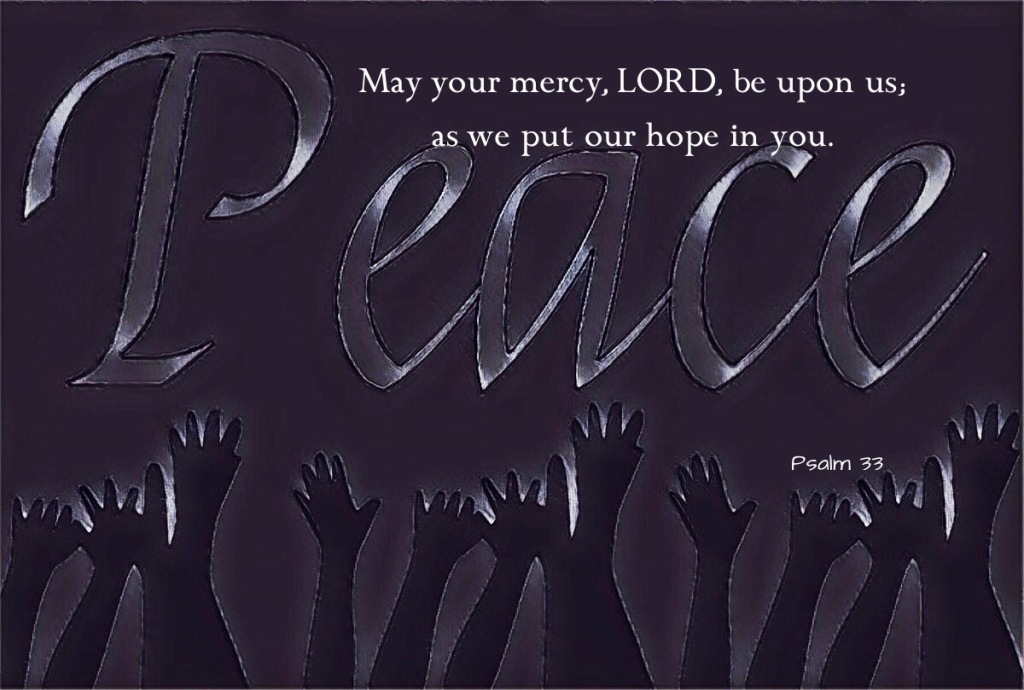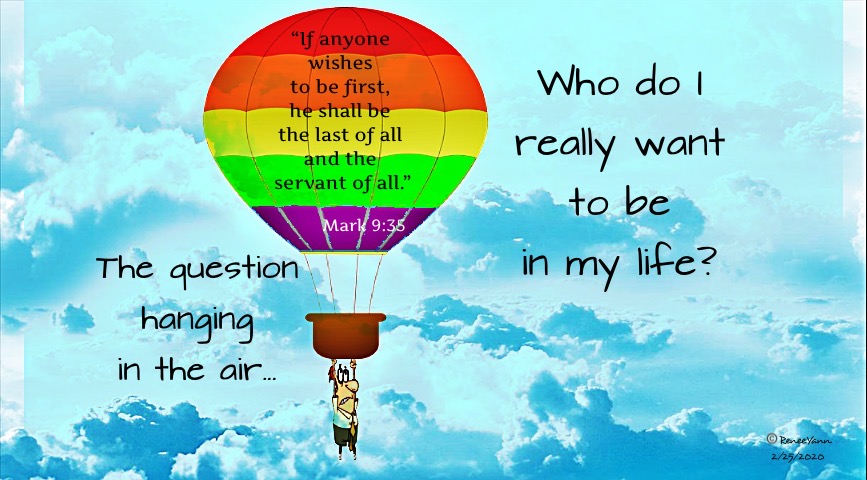Thursday of the Thirtieth Week in Ordinary Time
October 27, 2022
Today’s Readings:
https://bible.usccb.org/bible/readings/102722.cfm

Today, in God’s Lavish Mercy, we pray with Psalm 144, a royal psalm of David in which he celebrates victory and its ensuing peace.
Blessed be the LORD, my rock,
who trains my hands for battle, my fingers for war.Psalm 144:1
While, at first blush, the psalm seems to extol war as a means to achieve power, its message is really quite the opposite.
It is only through reliance on God and faithfulness to God’s law that we find right-balance and peace – in our world, our community, and ourselves
My mercy and my fortress,
my stronghold, my deliverer,
my shield, in whom I trust …Psalm 144:2
Historically, our world religions have had a vexing relationship with war, often espousing it to advance questionable agendas. Only in recent years has the Catholic Church re-evaluated what is referred to as the “Just War Theory”.
For a good explanation of this theory, click on the link below
https://ethics.org.au/ethics-explainer-just-war/embed/#?secret=WgLct1C96K
However, in Fratelli Titti, Pope Francis declares:
War can easily be chosen by invoking all sorts of allegedly humanitarian, defensive or precautionary excuses, and even resorting to the manipulation of information. In recent decades, every single war has been ostensibly “justified”. The Catechism of the Catholic Church speaks of the possibility of legitimate defence by means of military force, which involves demonstrating that certain “rigorous conditions of moral legitimacy” have been met. Yet it is easy to fall into an overly broad interpretation of this potential right. In this way, some would also wrongly justify even “preventive” attacks or acts of war that can hardly avoid entailing “evils and disorders graver than the evil to be eliminated”. At issue is whether the development of nuclear, chemical and have granted war an uncontrollable destructive power over great numbers of innocent civilians. The truth is that “never has humanity had such power over itself, yet nothing ensures that it will be used wisely”. We can no longer think of war as a solution, because its risks will probably always be greater than its supposed benefits. In view of this, it is very difficult nowadays to invoke the rational criteria elaborated in earlier centuries to speak of the possibility of a “just war”. Never again war!
As we pray with this psalm today, we might echo its last verse and pray a prayer like this for all people, for our fratelli tutti…:
May there be no breach in the walls,
Psalm 144:14-15
no exile, no outcry in our streets.
Blessed the people so fortunate;
blessed the people whose God is the LORD.
Poem: Misnomer by Denise Levertov
They speak of the art of war,
but the arts
draw their light from the soul’s well,
and warfare
dries up the soul and draws its power
from a dark and burning wasteland.
When Leonardo
set his genius to devising
machines of destruction he was not
acting in the service of art,
he was suspending
the life of art
over an abyss,
as if one were to hold
a living child out of an airplane window
at thirty thousand feet.
Music: Where Have All the Flowers Gone














